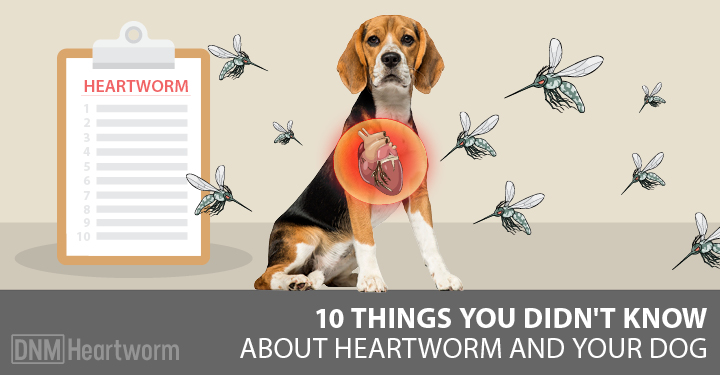Heartworm disease is a serious, progressive disease caused by parasitic worms in the heart, lungs and large blood vessels. Heartworm is atypical in cats and it is difficult to diagnose due to limited amounts of adult worms. Dogs are the natural and preferred hosts of heartworms.
Life Cycle
Heartworm is transmitted via mosquitos. A female mosquito must receive a blood meal from a heartworm infected dog/fox/coyote. At this stage, the parasite can develop further within the mosquito until they are capable of being transmitted to another host. A carrier female must bite an animal to transmit the disease to its final host. At this point, the transmitted larvae can now travel to the animal’s heart where they will grow and reproduce.
Diagnosis and Heartworm Testing
Female worms produce offspring called microfilaria that can be detected in the blood during heartworm testing. In the early stages of the disease, few symptoms or no symptoms are observed. Heartworm tests are the best way to diagnose the disease at this time and to catch it early. Heartworm tests should be performed annually in the spring and a parasite prevention plan should be discussed with your veterinarian. A few drops of blood are pulled from your dog and the test is run in-house within minutes.
Prognosis and Prevention
As the disease progresses, heartworms can cause damage to the heart, lungs and surrounding blood vessels. Clinical signs may include fatigue, coughing, weight loss and reduced appetite. The earlier the disease is detected, the better the prognosis. Parasite prevention is highly effective but, testing should still be performed annually. Your pet may be left unprotected if they happen to spit out a dose without anyone noticing or if a dose was given late/missed. In conclusion, parasite prevention paired with annual testing is the best way to protect your dog against heartworm disease.
Feel free to give us a call today (519-893-8937) to schedule your dog’s annual heartworm test!

